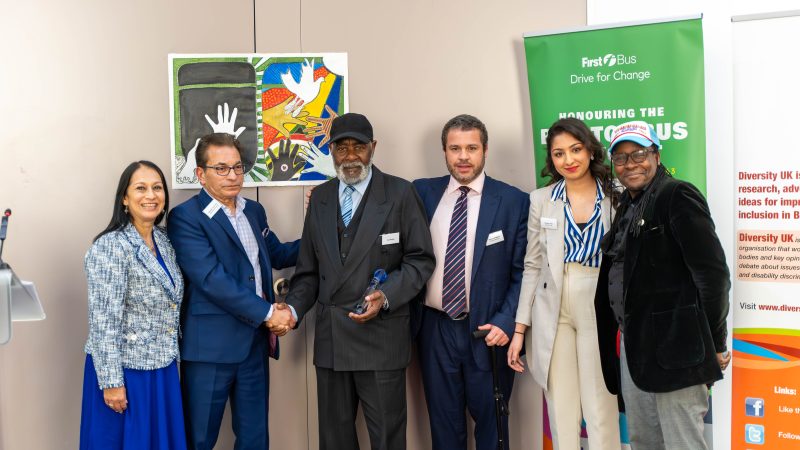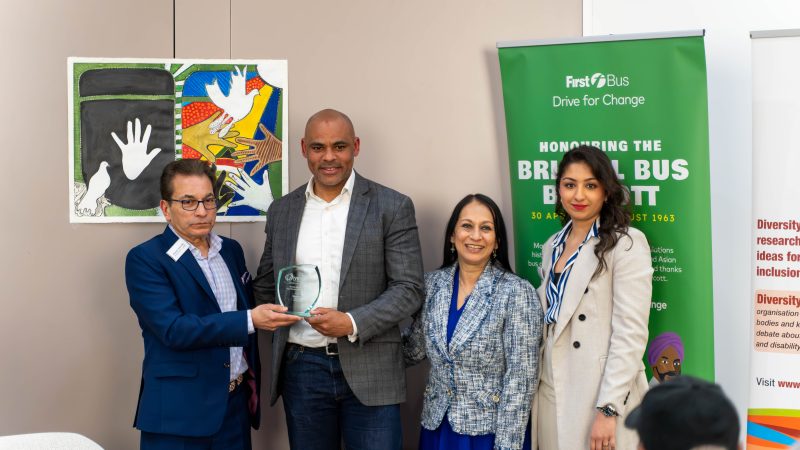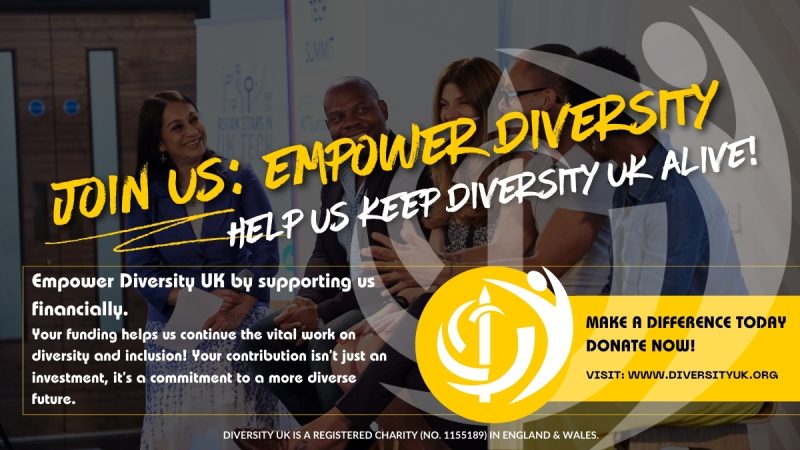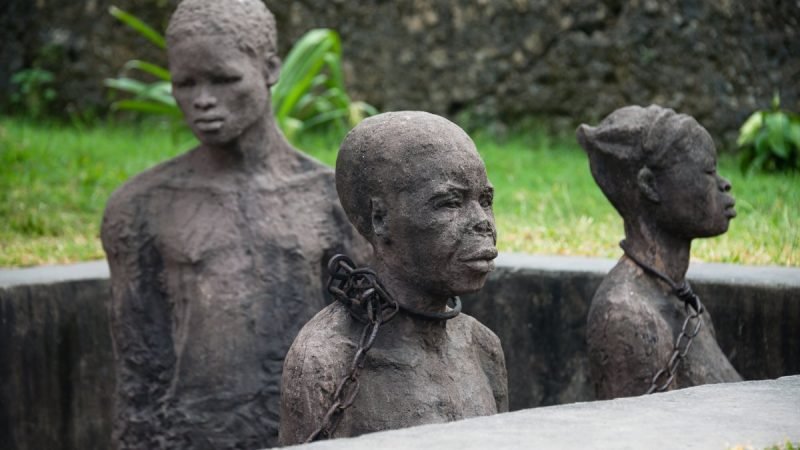Leading geoscientist exposes institutional racism in science
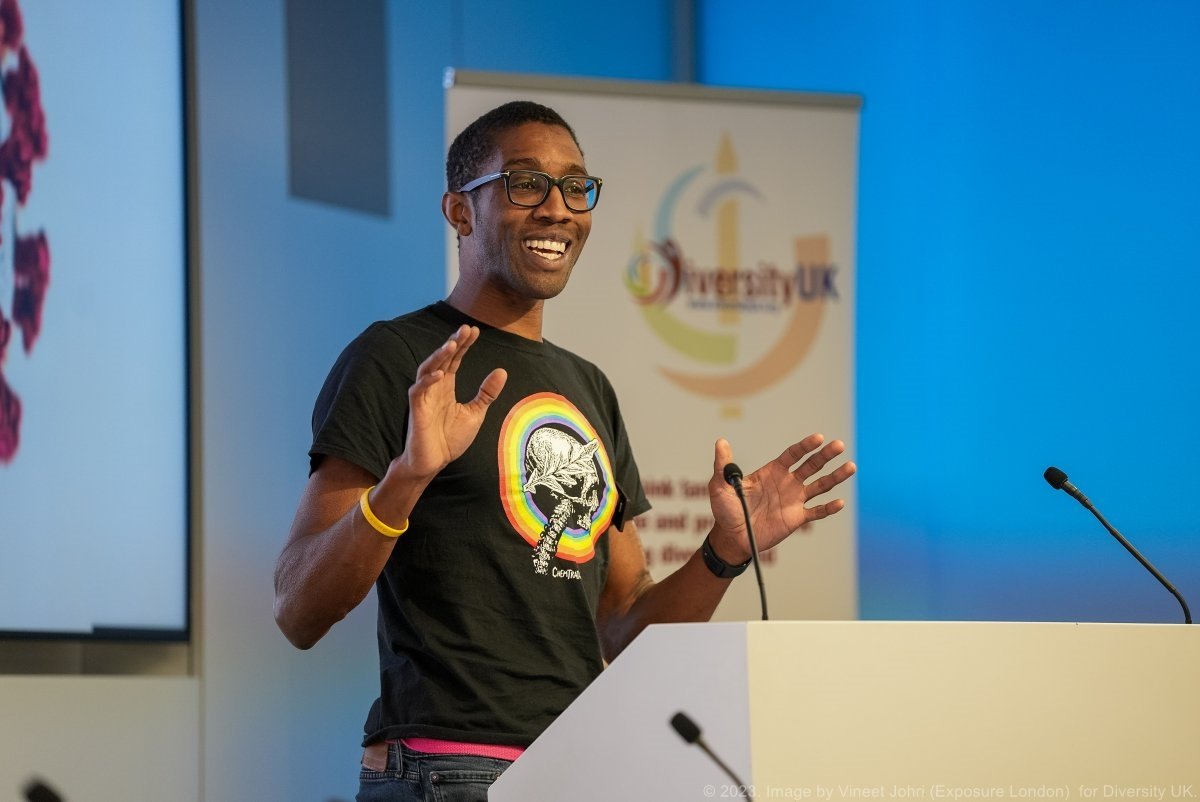
Leading geoscientist, Chris Jackson, yesterday exposed the issues of institutional discrimination in higher education and explored the steps he thinks everyone needs to take to end racism in science. Chris Jackson, who is Director of Sustainable Geoscience at the engineering consultancy Jacobs and Visiting Professor of Basin Analysis at Imperial College London, was speaking at the annual Paul Stephenson lecture on race equality. Eponymous with the civil rights campaigner, the Paul Stephenson lecture was organised by Diversity UK, Race Equality Matters and global law firm Eversheds Sutherland, who hosted the event at their Central London headquarters.
Theme 2023: ‘Ending Racism in Science is Everyone’s Business’
The government has laid out ambitious plans for the UK to become a Science Superpower and it has announced a number of initiatives in support of achieving this ambition; from investing £800 million in creating the Advanced Research and Invention Agency (ARIA) to the £480m new research support announced in The Chancellor's Autumn Statement 2022. The overall aim is to increase economy-wide investment in R&D to 2.4% of GDP by 2027. On 7 February 2023, Prime Minister Rishi Sunak announced the formation on 4 new departments including a new Department for Energy Security and Net Zero, which has been tasked with securing long-term energy supply and a new Department for Science, Innovation and Technology that will drive the innovation that will deliver improved public services, create new and better-paid jobs and grow the economy.
Taking place in the middle of Race Equality Week - an annual UK-wide movement uniting thousands of organisations and individuals to address the barriers to race equality in the workplace, which takes place from 6th - 12th February this year - guests at the Paul Stephenson Lecture 2023 also heard from Raj Tulsiani, CEO & Founder of Greenpark and a Co-Founder of Race Equality Matters CIC. The theme for Race Equality Week 2023 is #ItsEveryonesBusiness because tackling race inequality is everyone’s business.
Diversity is a human rights issue
“A Royal Society report published in 2019 demonstrated that companies that invested in science and innovation are 13% more productive. The value of diversity to business is well understood but I am hostile to the monetisation of diversity. Our value is on human terms not just a business or economic one. Equality is a human rights issue so we shouldn’t just be focussing on it as a bottom line issue,” said Chris, “science has allowed us to understand the environment better in terms of deforestation and climate change; better energy provision and healthcare applications.”
Chris examined gaps in visa schemes for top scientists that failed to recognise those who studied at African, Caribbean or Latin American universities; lower funding success rates for black scientists applying for UKRI grants. “In my view, this is structural or institutional racism, the framework is creating a barrier at the first stage and is endemic in the UK.” He stressed that scientists need to develop skills to talk to others across the world to solve global challenges and without embracing diversity in Britain, it is more difficult for the UK to achieve its aims to be a “science superpower”.
He cited positive steps that a number of organisations have taken to address structural racism, highlighting the work of the Wellcome Foundation and PwC. The steps that can be taken include, among others:
- Embracing openness, admitting there is a problem.
- Collecting data and evidence to highlight the challenges.
- Addressing awarding gaps in degree classifications between groups.
- Co-creating initiatives with under-represented people.
- Creating programmes to empower black people.
“Part of the empowerment of black people and removal of barriers is to use non-passive language ‘stangled pipeline’ or ‘hostile obstacle course’ are better and more accurate terms than ‘leaky pipeline’ which is a passive term indicating it is somehow happening on its own”, stressed Chris, “it’s also important to disaggregate data to see the real picture. Terms like ‘BAME’ can mask the real issues for certain groups. People of colour are not a monolith”.
When asked about how far we have come on diversity and inclusion in Britain, Chris added “We in the UK have not come as far as we like to think we have. The actions of campaigners like Paul Stephenson helped us legislatively, but culturally we have not made the progress we should have. The end is not in sight yet, but with greater openness and willingness to embrace change, we will achieve faster progress.”
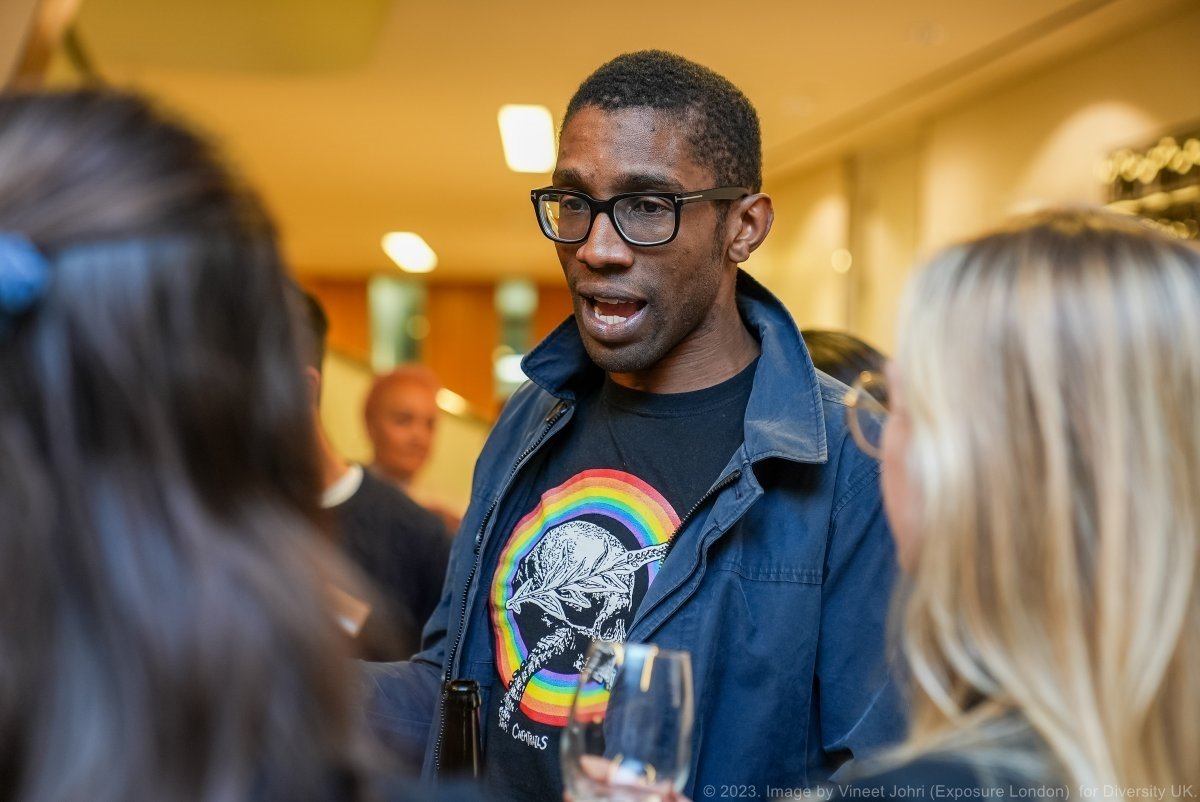
About Chris Jackson
Chris Jackson is Director of Sustainable Geoscience at the engineering consultancy Jacobs and Visiting Professor of Basin Analysis at Imperial College London. Chris works in the general area of sedimentary basin analysis. When not studying rocks, Chris gives geoscience lectures to the public and in schools, having appeared on several, Earth Science-focused, television productions and podcasts. He gained prominence in 2017, when he co-presented Expedition Volcano, a BBC documentary, and in 2020 he became the first Black person to present the Royal Institution’s Christmas Lectures. Chris is engaged in efforts to improve equality, diversity, and inclusivity in Higher Education.
About the Diversity UK Paul Stephenson lecture
Diversity UK inaugurated the first Paul Stephenson lecture, given by Helen Grant MP, in November 2016 at the Speaker’s House, House of Commons, in London in the presence of Dr Paul Stephenson OBE who spoke about his own upbringing and the boycott of the Bristol Omnibus Company that he led in 1963, which paved the way for the first Race Equality Act in 1965. Helen spoke about race and diversity in a post-Brexit Britain. Since then, the Diversity UK Paul Stephenson Lecture on race equality has been given by well-known equality campaigners including:
Lord Simon Woolley, Director at OBV, who spoke about his work on race equality & inclusion.
Wilfred Emmanuel-Jones MBE, who talked about his championship of inclusive entrepreneurship.
Tangy Morgan, a Senior Advisor to the Bank of England Prudential Regulation Authority (PRA).
Elaine Sihera, Cambridge postgraduate and a leading achiever in the British Black community.
Tom Ilube CBE, a cybersecurity entrepreneur and education philanthropist.
Patrick Vernon OBE, Windrush campaigner and co-author of the ‘100 Great Black Britons’ book.
Professor Marcia Wilson, Dean of Equality, Diversity & Inclusion at the Open University (OU).
About Dr Paul Stephenson OBE
Dr Paul Stephenson OBE, is a community worker, activist and long-time campaigner for civil rights for the British African-Caribbean community in Bristol, England. As a young social worker, in 1963 Stephenson led a boycott of the Bristol Omnibus Company, protesting against its refusal to employ Black or Asian drivers or conductors. After a 60-day boycott supported by thousands of Bristolians, the company revoked its colour bar in August.
In 1964 Stephenson achieved national fame when he refused to leave a public house until he was served, resulting in a trial on a charge of failing to leave a licensed premises. His campaigns were instrumental in paving the way for the first Race Relations Act, in 1965. Paul Stephenson is a Freeman of the City of Bristol and was awarded an OBE in 2009. In July 2014, Mr Stephenson was awarded an honorary degree (Doctor of Law) by the University of Bristol "for his dedication to fighting for equality and civil rights across Bristol and around the world for over 60 years". In November 2016, he was presented with the Diversity UK Lifetime Achievement Award and has its annual lecture named in his honour.
About Diversity UK
Diversity UK is an equality and inclusion charity that researches, advocates and promotes ideas for improving diversity in Britain. It delivers its charitable objectives by undertaking research, facilitating debates, hosting roundtable meetings and publishing a regular newsletter focusing on contemporary equality issues.
Diversity UK is a registered charity (No: 1155189) in England & Wales. For further information, visit https://diversityuk.org/
About Race Equality Matters
Race Equality Matters is a not-for-profit community interest company (CIC), founded and supported by diversity champions, including Diversity UK.
Race Equality Week is an annual UK-wide movement uniting thousands of organisations and individuals to address the barriers to race equality in the workplace. More than 2000 organisations took part in the first Race Equality Week in February 2021. In 2022 we had 3500 people from 3000 organisations. There are multiple options to join in, which have been developed in collaboration with ethnically diverse stakeholders who believe that it will help make an impact, including:
#MyNameIs - normalising phonetic name spelling
Safe Space - guiding conversation into action
The Big Promise - commitment to action, not words
Tea Break - enable courageous conversations
Digital Pin Badge campaign - to show visible support
For further information, visit https://www.raceequalitymatters.com/race-equality-week/
About Eversheds Sutherland
As a global top 10 law firm, Eversheds Sutherland provides legal services to a global client base. With more than 3,000 lawyers, Eversheds Sutherland operates in over 70 offices in more than 30 countries across Africa, Asia, Europe, the Middle East and the United States. In addition, a network of more than 200 related law firms, including formalised alliances in Latin America, Asia Pacific and Africa, provide support around the globe.
Diversity and Inclusion is fundamental to the firm's purpose of "helping our clients, our people and our communities to thrive", and 'Inclusive' is one of our five values. Our strategy encompasses a number of diversity dimensions including ethnicity; gender; disability; sexual orientation, gender identity and expression; parenting and caring; faith and social mobility. By embracing diversity, we can better partner with our global and diverse client base, and be open and welcoming to all, across the communities we live and work in.
For further information, visit www.eversheds-sutherland.com

